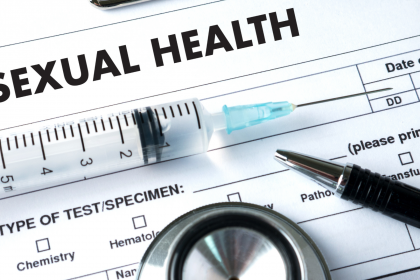CBD, short for cannabidiol, is a natural compound derived from the cannabis plant. It is one of over a hundred cannabinoids found in cannabis, and unlike its more well-known cousin, THC (tetrahydrocannabinol), CBD does not produce the psychoactive effects associated with marijuana use. Instead, CBD is renowned for its potential therapeutic benefits, which include relief from pain, anxiety, insomnia, and various other health conditions. This non-intoxicating cannabinoid has gained widespread popularity for its promising role in the field of alternative medicine and wellness, leading to the proliferation of CBD-infused products in recent years.
CBD can be obtained from various sources. One of the most common ways to acquire CBD products is through authorized dispensaries like sky high meds or retailers in regions where cannabis is legalized for medical or recreational use. Online retailers also provide a wide array of CBD options, offering convenience and accessibility to individuals worldwide. Additionally, hemp-derived CBD, containing minimal THC, is legal in many places and can be found in health food stores, specialty shops, and even some pharmacies.
To make and sell CBD products legally in the United States, you will need to follow specific guidelines from your state’s department of health. In most cases, you will need to obtain a license from your state’s department of agriculture. Some states also require that you test your products for contaminants like THC.
If you’re considering entering the CBD business, it’s important to seek counsel from a Washington cannabis business lawyer or similar legal professionals nearby. They can assist you in obtaining the necessary licenses and ensuring that your products comply with state regulations. While the legality of CBD products varies by state, it is generally legal to purchase and use them for personal consumption. However, it is still illegal to produce or sell CBD products without a license in most states. You may be able to sell CBD products online if you are compliant with state laws in your area.
The Law and CBD
CBD is legal in most states, but there are still some details to know about how it is legally classified and what you need to do to sell CBD products. In recent years, CBD has become a popular topic of discussion among legal experts. There is still much debate surrounding the legal status of CBD, as well as its potential benefits and risks.
Some experts believe that CBD should be legalized, while others believe that it should be kept illegal. However, there is no clear consensus on the matter.
How do CBD businesses work?
CBD businesses operate within a complex regulatory landscape, requiring a thorough understanding of the legalities involved in making and selling CBD products. Since not every business can spend millions on R&D and growing cannabis plants, many businesses typically start by sourcing Hemp Wholesale from reputable suppliers that specialize in the cultivation and extraction of CBD-rich hemp plants. Once the CBD is obtained, it undergoes rigorous testing to ensure quality, potency, and compliance with regulatory standards. CBD businesses then use the extracted CBD to create a wide range of products, such as oils, edibles, topicals, and more and sell them on the open market.
What makes CBD beneficial?
One of the main arguments for the legalization of CBD is that it has potential medical benefits. Proponents of CBD claim that it can help treat a wide variety of conditions, including anxiety, pain, and insomnia. However, there is still a lack of scientific evidence to support these claims.
Dietary Supplement
Additionally, CBD is often sold as a dietary supplement, which is not regulated by the FDA. This means that the quality and safety of CBD products can vary greatly.
On the other hand, some experts believe that CBD should remain illegal. They argue that CBD could be abused and could lead to addiction.
Additionally, they claim that there is still not enough scientific evidence to prove that CBD is safe or effective. Until there is more research on CBD, they believe that it should not be legalized.
CBD is a complex and controversial topic, and we must discuss the law and CBD before selling.
How is CBD Made Before Selling?
CBD, short for cannabidiol, is a substance found in cannabis plants. Research suggests it has many medical benefits, such as relieving anxiety and inflammation. While CBD products are legal in some states, they’re not allowed everywhere. Additionally, in states where they are legal, there are often other businesses, like this one selling Wholesale bongs, that complement CBD businesses, creating an environment for cannabis enthusiasts. However, it’s important to understand the legalities surrounding CBD production and sale before starting a business in this industry.
To make CBD oil, you will need to gather the following ingredients:
- Cannabis plant material (ideally hemp)
- Cold storage equipment for the oil (like a freezer)
- Distilling apparatus (like a still)
- Filtering apparatus (like a coffee filter)
- Bottle or container for storing the oil
For Planting:
- Gather your cannabis plant material. This can be grown indoors or outdoors.
- Remove any damaged or diseased parts of the plant.
- Plant the cannabis in a well-drained area.
- Keep the plant watered and fertilized as needed.
- Harvest the buds when they are ready and start to feel strong energy coming from them. The buds should be dark green and have a THC content of less than 20%.
- Store the buds in a cool, dry place until you are ready to make CBD oil.
- Make sure to keep the buds away from children and animals!
For Storage:
- Gather your cold storage equipment. This will include a freezer, cooler, and still.
- Remove any damaged or diseased parts of the plant.
- Store the plant in a well-drained area.
- Make sure to keep the buds away from children and animals!
- Gather your distilling apparatus (still) and filtering apparatus (coffee filter).
- Store the still and filtering apparatus in a cool, dry place until you are ready to make CBD oil.
- Make sure to keep the still clean!
For Distilling:
- Gather your distilling apparatus (still).
- Remove any damaged or diseased parts of the plant.
- Store the still in a cool, dry place until you are ready to make CBD oil.
- Make sure to keep it clean!
- Gather your bottle or container for storing the oil.
- Store the bottle or container in a cool, dry place until you are ready to make CBD oil.
- Fill the still with plant material and turn it on!
For Filtering:
- Gather your filtering apparatus (coffee filter).
- Remove any damaged or diseased parts of the plant.
- Store the coffee filter in a cool, dry place until you are ready to make CBD oil.
- Make sure to keep the coffee filter clean!
For CBD Packing or Bottling:
- Gather your bottle or container.
- Remove any damaged or diseased parts of the plant.
- Fill the bottle or container with CBD oil and seal it shut!
- Store the CBD oil in a cool, dry place until you are ready to use it.
Now that you know the ins and outs of CBD legality, you can start making and selling your CBD products with peace of mind. Just be sure to stay up to date on the latest FDA regulations to ensure that you are always compliant.
And don’t forget to let your customers know that they are purchasing a high-quality, legal product. With these tips in mind, you are now ready to start your CBD business!




